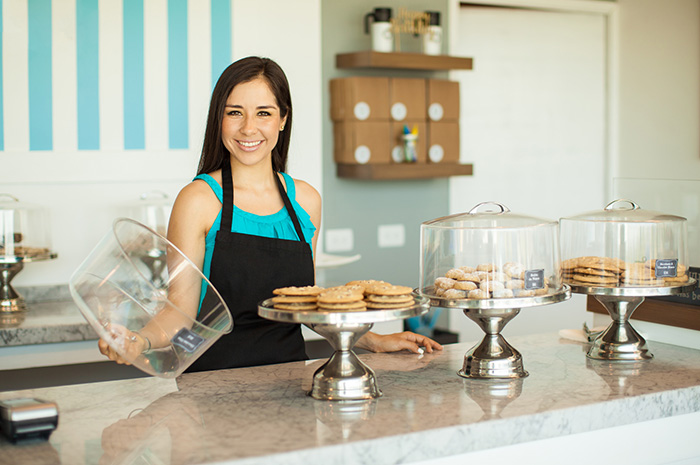
Food or Dessert: the Pros and Cons to Different Types of Franchises
Different personalities thrive better in different types of atmospheres. There are those who need a quick-paced day and are able to grow and succeed in even the busiest of scenarios. Then, there are those who need a calmer place of work, where they can think and have time to process what’s taking place. Neither one – nor the 10+ alternatives – is right or wrong. They simply offer something new for each type of worker or business owner.
The same can also be said for a theme or type of product. In the food franchise world, that can mean any type of restaurant or type of meal. From drive-throughs, to specialty dessert stores, to sit-down eateries, and everything in-between, franchises come in all shapes and sizes.
But which version is the best fit for you? And how to you determine what “fits” before getting started? By looking into the pros and cons of each, and how they might affect your business.
For instance:
Dessert Stores Require Less Overhead
Whether you’re selling ice cream or homemade pies, desserts will generally need fewer ingredients to keep you in business. That can mean fewer plastic/paper products as well. You’ll need plenty of flavors of dessert – or types, depending on what’s available – to keep all types of palates happy. However, because you’re only dealing with one type of meal – sweets – you can cut down on overhead considerably.
Cons: Fewer choices for customers, and products that not everyone might be craving at “abnormal” times throughout the day. Diet fads or those looking to get in shape might stay away as well.
Savory Foods Can Attract a Wider Customer Base
In contrast, by selling different types of meals – and different types of foods – those who prefer all types of flavors will stop in for savory options. That means a bigger pool of customers to choose from, not just those who have an afternoon sweet tooth or are getting a treat on their way home from work.
You can also ensure that you’ll be busy (or at least busier) through meal times, no matter what types of food you’re selling. This can mean bigger, quicker growth and larger profit margins.
Cons: More funds tied up in products, as well as more employees needed to stay in business. There’s also more to keep track of (and know how to do) within this process.
Storefronts Offer Charm… and Impromptu Purchases
If you host an actual store (vs. a restaurant), such as selling specialty items, you’re offering something that many eateries don’t have - charm and packaging appeal. Fancy desserts can be wrapped up or stored in collector tins, popcorns can be given as holiday gifts, etc. This can work to attract shoppers, rather than hungry passersby. It’s also something “a little different,” allowing you to set yourself apart from the everyday fast food shop. Not to mention impulse buys that can greatly increase one’s business.
Cons: It can be more expensive to purchase these types of products, with more required upkeep to manage a specialty store. It can also be more difficult to draw in customers who haven’t heard of a certain brand.
Specializations
A perk that’s great for both sides: the ability to offer a single amazing product or a few amazing products. By specializing in one certain area, you can take over that market and draw in hungry folks for miles around. They’ll know you have the best pizza, or the best caramel apples, and go out of their way just to experience a crowd favorite.
Cons: If there are too many types of a certain food, you can lose business to a different version of the same genre. Or, be forced to spend more time and energy (and money) advertising your location.
There are pros and cons to all types of businesses; when weighing your franchising options, take these into consideration in order to find the best fit for your business goals.
By FoodFanchise.com Staff | February 12, 2018 | Food Franchise Blog
